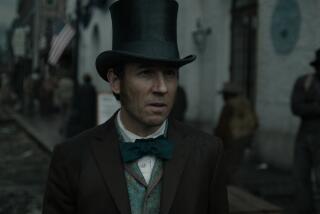Roosevelt: From Rough Rider to President
Shortly after he survived an assassination attempt in Milwaukee in 1912, Theodore Roosevelt said: “No man has had a happier life than I have led; a happier life in every way.”
It was also an extraordinary life. Not only was he the 26th president of the United States -- and at 42 the youngest to ever hold the office -- Roosevelt was a true Renaissance man. He wrote 35 books, was a legislator, cowboy, war hero, father, husband, conservationist and scholar. He led the country into a new century and transformed the U.S. into a player on the world stage.
Larger than life, Roosevelt, who has been described as someone who wanted to be the bride at every wedding and a corpse at every funeral, was also accused of bigotry, warmongering and imperialism. But he was also the only American president to be awarded the Medal of Honor and the first to be awarded the Nobel Peace Prize. Roosevelt is the only president from the 20th century to be carved in stone with the images of Abraham Lincoln, George Washington and Thomas Jefferson on Mt. Rushmore.
And now Roosevelt, who stepped in for the assassinated William McKinley in 1901, is the subject of a four-hour documentary, “TR An American Lion,” to be broadcast Monday and Tuesday on the History Channel.
The fascinating exploration of this complex, contradictory and brilliant statesman, features vintage photographs, newsreel footage and interviews with former President Clinton; New York Gov. George Pataki; authors Edmund Morris, Kathleen Dalton and Sylvia Jukes Morris; historian John Milton Cooper Jr.; and several of Roosevelt’s descendants, including granddaughters Nancy Roosevelt Jackson and Edith Roosevelt Jackson and great-grandsons Theodore Roosevelt IV, Tweed Roosevelt and Kermit Roosevelt.
Narrated by Edward Herrmann, the documentary also features reenactments. Richard Dreyfuss supplies the voice of the blustery Roosevelt.
“He had so much joie de vivre and enthusiasm for life,” says Libby O’Connell, the History Channel’s historian-in-residence. “He would have been fun to have dinner with and somebody who would like to talk to anybody from any walk of life.”
In today’s political arena, says O’Connell, Roosevelt appeals to both the Democratic and Republican parties. “They see in him aspects of leadership they want to emulate,” she explains.
As president he issued the “Square Deal” domestic program, which sought to bring reform, order and social justice to American industry and commerce. A noted “trust buster,” Roosevelt was the first president to assert government control over big railroad, oil and meatpacking businesses.
He also created 150 national forests, 51 game preserves, the first 18 national monuments and the first four national game preserves.
“He was the transition person from the 19th century to the 20th century,” says Charlie Mayday, senior vice president of programming for the History Channel. “He had a vision for America.”
John Gable, executive director of the Theodore Roosevelt Assn., points out that during the Vietnam War, Roosevelt’s popularity experienced a downswing because he was considered a warmonger. But since the early ‘80s, due to the publication of several books touting Roosevelt’s vast accomplishments, his popularity has flourished
Roosevelt, who died at the age of 60 in 1919, said after he turned 50 that it didn’t matter if he lived or died because he had accomplished everything.
Even when he was shot in the chest in 1912 while campaigning for president, he wasn’t afraid of the grim reaper. In fact, he gave an hourlong speech while the bullet was still lodged in his chest.
“If he had gone to be treated or if the wound had been definitely diagnosed, he would lose credibility,” says Gable.
“But if he was to speak not knowing if he would live or die, he would have tremendous credibility because no one would lie if they were going to meet their maker.”
“TR An American Lion” can be seen Monday and Tuesday at 9 p.m. on the History Channel.
Cover photograph courtesy of Getty Images.



